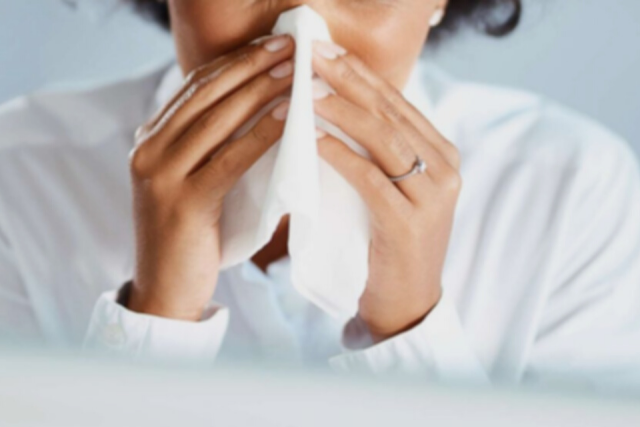Whether it’s the result of a simple allergy or a viral infection, a cold can cause a lot of discomfort in the person having it. The symptoms of a cold caused by allergies range from itchy and runny nose, itchy eyes to skin rashes and usually occur at a particular period of the year. However, the symptoms of a common cold are fatigue, headaches, sore throat as well as fever. Since it’s hard to tell the difference between the two, appropriate measures can be taken so as to treat it or ease the symptoms. Some of the measures you can take include:
Blowing your nose
Once you catch a
cold, your immune system responds immediately by releasing a chemical called histamine
which causes your nasal membranes to produce a lot of mucus. Though it’s not harmful
to swallow the mucus (or phlegm), blowing your nose to let the mucus come out
of your head isn’t either. It’s better than sniffing it back.
Resting
A common cold
causes fatigue and pains. Having a good rest can help ease the pains. Your body’s
immune system then starts fighting the disease effectively. Staying home also
reduces the risk of transmitting the disease to others.
Staying hydrated
Drinking warm
water can also help ease the symptoms. It also loosens the congestion in your
nose and sinuses. You can add some lemon juice to it and drink it little by
little. Ginger, peppermint and green teas can be effective, too. Alcohol and
coffee should be avoided.
Using a warm towel
Heat some water
and then put your towel or washcloth inside it. It shouldn’t be too hot. Use it
gently on your face and sniff the steam a little. Then press it on your cheeks from
bottom to top and vice versa. This helps combat stuffiness or congestion in
your nose to allow smooth passage of air and it makes you feel better.
Salt-water gargling
To soothe the
sore throat, dissolve 1/2 teaspoon of salt in a glass of warm water. Put some
in your mouth and gargle it at least 2 times for 5 to 10 seconds each. This
will relieve the sore and scratchy throat.
Nasal sprays
Trying nasal
sprays can also help relieve congestion. You can use decongestants or saline
nasal sprays to clear your nostrils. The way to use it effectively are as
follows:
- Block one nostril with your finger
- Shake the bottle
- Put your head down a little
- Spray in the one corner of your
nostril (away from the connection between the two nostrils) and breathe in gently
- Do the same for the other nostril 1
or 2 times then sniff slightly
Note that
instructions may vary, but most look similar. Follow the instructions properly
as directed so as to avoid bleeding.
Pain relieves
You can use painkillers
such as acetaminophen or ibuprofen to ease the aches and lower your body temperature.
You may check on the label to know how to use it.
Honey tea
This is very
effective to combat coughs in both adults and children. You can add 1 to 2
teaspoons of honey to your favorite hot tea and sip it slowly.
Using humidifiers
These are good to
clear the air and help breathe well. They provide moisture in your home that
can also soothe the sore throat. Put it close to where you or your child sleeps
but safely out of reach. You also have to make sure to follow instructions to
maintain them clean and change the water inside it regularly.
Vitamin c
Although using vitamin
c as a cure for common cold may not work, taking it as an immune system booster
is not bad. Vitamin c is one of the key elements in the production of white
blood cells which help in preventing and fighting infections and diseases. It
is therefore recommended to take vitamin c as a preventive technique rather
than a cure. So, make sure to include it in your diet. You can get it from
fruits and vegetables or simply as supplements in pharmacies.
Know when to call a doctor
There may be some
cases where the symptoms persist after you have followed the above steps. For
example, if you notice that the coughs and fever are not getting away after a
few days, or if breathing becomes difficult or rapid, you should immediately
call your doctor and set an appointment.
Prevention tips
- To avoid catching a common cold, it is recommended to:
- Wash hands or use sanitizers regularly
- Cover your sneezes or coughs
- Don’t touch your face with dirty
hands
- Sleep enough
